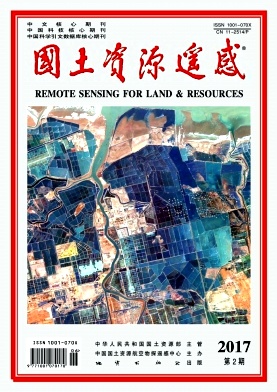HE Lian, QIN Qiming, REN Huazhong. An adaptive hybrid Freeman/Eigenvalue polarimetric decomposition model[J]. Remote Sensing for Natural Resources, 2017, (2): 8-14. doi: 10.6046/gtzyyg.2017.02.02
| Citation: |
HE Lian, QIN Qiming, REN Huazhong. An adaptive hybrid Freeman/Eigenvalue polarimetric decomposition model[J]. Remote Sensing for Natural Resources, 2017, (2): 8-14. doi: 10.6046/gtzyyg.2017.02.02
|
An adaptive hybrid Freeman/Eigenvalue polarimetric decomposition model
-
Abstract
Polarimetric decomposition of fully polarimetric SAR data has been extensively used in land use classification, target detection and identification, and land surface parameter retrieval.At present, two main categories of polarimetric decomposition approaches can be identified, i.e., model-based decomposition and eigenvalue-based decomposition.By combining the advantages of the above two decomposition methods, the hybrid Freeman/Eigenvalue method can deal with the negative power problems, and the decomposed components can be interpreted in terms of known scattering mechanisms.In order to extend the applicability of the hybrid Freeman/Eigenvalue to different types of land cover, the authors propose a novel adaptive polarimetric decomposition method in this paper by coupling the hybrid Freeman/Eigenvalue decomposition and an adaptive volume scattering model proposed by Neumann et al.The performance and advantages of the proposed method were demonstrated and evaluated with AirSAR L-band data over Black Forest in Germany.Comparative studies were also carried out with previous Yamaguchi three-component decomposition and adaptive nonnegative eigenvalue decomposition (ANNED).The results show that the proposed method can effectively avoid negative power problems and is applicable to different types of land cover.Moreover, different types of land cover can be well discriminated by the proposed technique.
-

-
-
Access History







 DownLoad:
DownLoad: